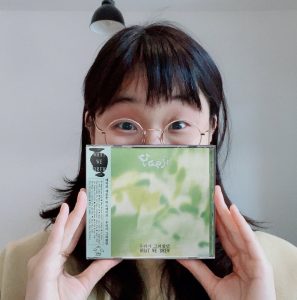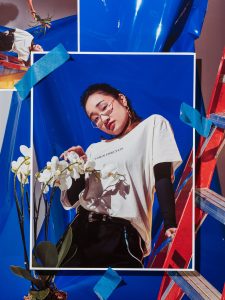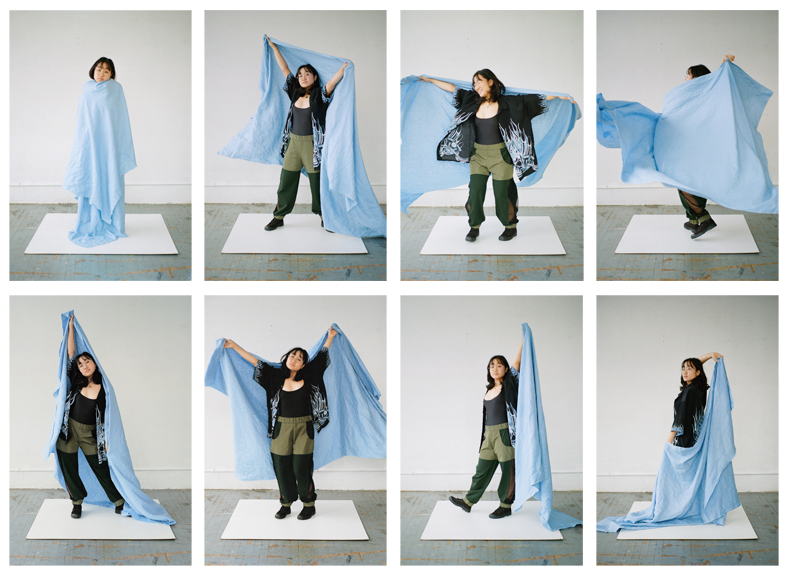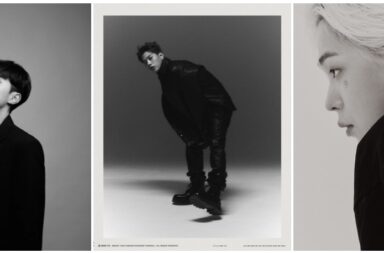
In the first edition of Indie Gem for 2020, we have decided to bring you the most critically acclaimed American-Korean artist out right now, Yaeji. Born in Flushing, Queens, a predominately Asian-American neighbourhood within New York, Yaeji relocated with her family back to South Korea at the age of nine. Yaeji eventually returned to America to double major in graphic design and conceptual art at Carnegie Mellon University, Pittsburgh. She has stated she felt like an outsider while growing up both in America and Korea. Yaeji has since found her home in the arms of the New York underground electronic music scene.
Yaeji’s sound is rightfully birthed from the club scene within the USA. Her sound is a melding of house, Korean indie rock, hip-hop, and techno. Yaeji first emerged in 2017 through the release of “raingurl,” a club anthem that danced across the walls of any club worth going to from New York to Seoul. Her cover of Drake‘s “Passionfruit” is what brought me to her sound, and perhaps pointedly the track which allowed global audiences to be introduced to her unique sound as well.
Yaeji has since released two EPs and just this month, she has released her highly anticipated mixtape What We Drew 우리가 그려왔던. This mixtape currently holds an aggregate of 82 out of 100 from 6 critical reviews, beating out enormous Hallyu wave records (at the time of writing this article) such as f(x)‘s 4 Walls and BTS‘s most highly reviewed album outside of Korea, Map of the Soul: 7.
Of course, critical darlings hardly ever translate to well-known artists, and the same can be said for Yaeji. Her influence in Korea is well, low enough for her to be considered an Indie Gem despite her acclaim across the rest of the globe.
From being nominated in BBC’s Sound of 2018 longlist to signing to the famed XL Recordings label which houses artists such as Radiohead and Adele, Yaeji has also accumulated millions of plays all across YouTube. She has etched herself as one of the most exciting new faces in America’s club dance scene.

Yaeji’s music dances the line between both English and Korean lyricism, something well established within K-pop but a stunning deviation within the drunken movements of clubbing. Alongside artists such as Rei Ami (and Peggy Gou or Park Hye-Jin outside the USA), Yaeji is pushing the Korean wave in a way never expected as a strong female voice embedded within the music scene.
I want to highlight again how irrelevant race is in the face of good music, and also how the integration of various cultures leads to a greater uniqueness in the body of sound being created by an artist.
Yaeji is also attached to Discwoman, a collective and booking agency representing female-identified and gender non-binary artists (largely POC and LGBTQIA). Discwoman have signed artists such as Mobilegirl, broadening Yaeji’s group of close-knit contemporaries and hinting at exciting possible collaborations in the future.
Yaeji has, much like Mobilegirl,appeared on Boiler Room the iconic online music broadcasting platform. As an artists, she has become an excellent symbol for fellow Korean-Americans hoping to one day pursue music without having to alter their sound for commercial viability. Her debut mixtape is a testament to the spirit of DIY.
What We Drew 우리가 그려왔던 was entirely produced by Yaeji over two years, with mixing being done by Christopher Botta and mastering by Heba Kadry. This mixtape also features less known artists from the community Yaeji has become a part of; Tokyo-based DJ YonYon (who has been her friend since middle school), Brooklyn rapper Nappy Nina, and London-based visual artist Victoria Sin are all artists who took part in this release.
It is especially important to highlight the people she interacts with and the community Yaeji finds herself in as Yaeji has affirmed that her music changes as the community around her does. Therefore, the amalgamation of sounds found all across this tape are a stitching together of the ethos within Yaeji’s circle of friends and collaborators.
What We Drew 우리가 그려왔던 is as such a record filled with gorgeous multi-faceted moments that appear, disappear, and reappear without any rigid rhythm. Yaeji’s vocals dance across a theatre of sound in various forms, sometimes as an ethereal falsetto, other times a distorted and torn apart vocal loop.
“In Place” is the perfect example of this, a track that starts with a bare vocal and eventually gets twisted and looped to serve the shifting mood of the track. Similarly, “What We Drew” starts with two vocals attached to a steady drumbeat. Yaeji’s vocals progressively become lighter and lighter, disappearing off into the clouds as the instrumentation slowly builds upon the skeletal drum spine. At the tracks close, Yaeji’s voice becomes warped into its highest pitch and ends abruptly.
The MV for “What We Drew” was filmed mostly in Yaeji’s old hometown of Bundang and serves primarily as an ode to her childhood in Korea. While lyrically sparse, the delivery of her verse carries the heartfelt sentimentality portrayed in the MV. It starts off with a bunching together of recordings showing Yaeji’s friends and grandfather.
The track itself then opens with a scat recording Yaeji’s father had sent her on KakaoTalk as a song idea. This MV as a whole captures the spirit of Yaeji, a musician who weaves the people she cares for into her music. Also, the onion sub-plot is a hilarious reminder that Yaeji and her friends’ creativity has no bounds, thankfully so.
Right now
The thoughts I carry
The passion I holdThanks to the ones that walk alongside me,
I can continue on
Beyond What We Drew 우리가 그려왔던, Yaeji will embark on a North-American and European tour in June if no dates are cancelled in the wake of the Coronavirus pandemic. The lack of planned live shows in South Korea perhaps indicate that she does not yet have a large enough audience in Korea.
Yaeji will likely also continue hosting her Curry In No Hurry events once quarantines end, marking another great place to find Yaeji and her community of friends in the future. Curry In No Hurry serves as an event where Yaeji and her collaborators play music but also serve food catered by Kichin, a Korean restaurant found in New York. Dancing and food do not usually mix that well, but knowing Yaeji’s love for connectivity within her music, Curry In No Hurry is definitely a bucket-list event.
Overall, there is very little not to love about Yaeji. Her music is a challenging blend of sounds well held together by introspective lyricism. The combination of English and Korean creates gorgeous angular vocal performances synonymous with modern Korean music.
Yaeji’s sound, therefore, has a lot more in common with the Korean music landscape than has been noted. As such, it feels only a matter of time before this Indie Gem finds her an audience and place within the Korean musical landscape.

(The Face, Pitchfork, NME, Pastemagazine, Vogue, AppleMusic, Instagram, SSense, Twitter, YouTube (1)(2)(3). Images via Pitchfork & Yaeji)


